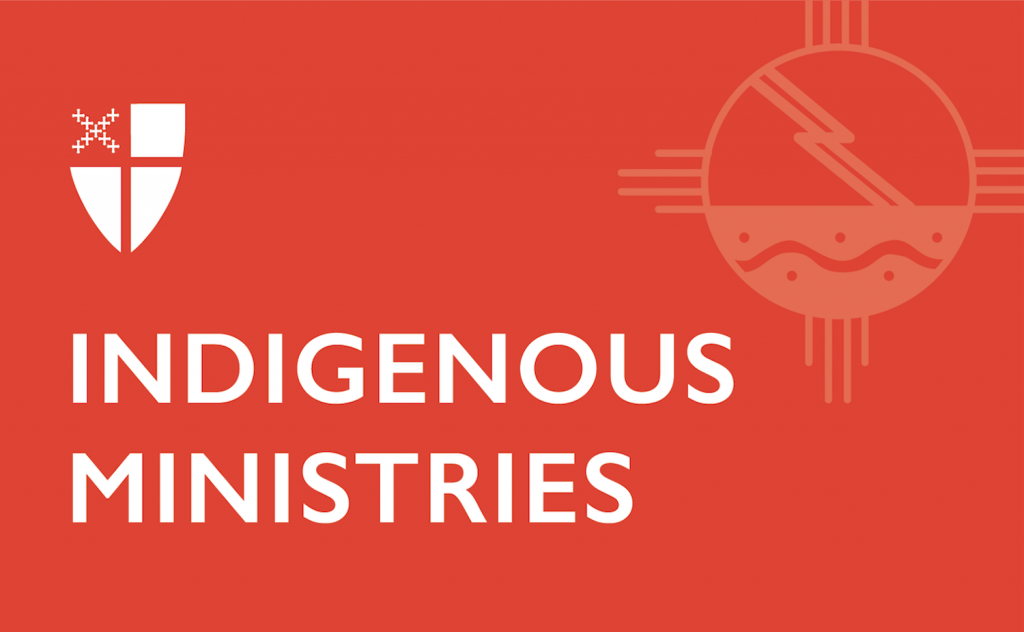Recap of Strong Heart:
The last Sunday of every month, the Young Adult Planning Group of Indigenous Ministries invites all members to a digital forum where discussion on topics important to leadership development and spiritual growth is held. The circle is held at 5 pm Eastern and all YAPG members are invited to attend. Past sessions of Strong Heart will be archived and available for viewing on Youtube (https://www.youtube.com/user/IndigEpiscopal).
For this first session of Strong Heart, we were joined by Isaiah Brokenleg, Program Director and Epidemiologist at Great Lakes Inter-Tribal Council. Isaiah gave a brilliant presentation on health in Indian country and the factors that specifically affect Indigenous peoples in the areas of health and wellness. We discussed how important it is that research be done by epidemiologists who are sensitive to Indigenous issues in Native American communities. This sensitivity to Indigenous specific factors promotes appropriate representation of the Indigenous population and also helps to remedy previous harms done to Native populations by biased research. As a Native epidemiologist, Isaiah gave examples of how previous research on Native peoples has been improperly handled. For example, the Havasupai tribe of Arizona, who had supplied blood samples for a medical study in the early ‘90s, found out years later that the blood samples had been used for numerous studies of both racially discriminatory intent and for medical research other than the stipulated use. Four individuals received their PhDs by using Havasupai blood sample research for their dissertations and were allowed to keep those degrees despite their unethical approaches. It is no surprise then that many Native communities and individuals do not trust allopathic (or Western) medicine and its practitioners.
From this point, the discussion turned to Western versus Traditional medicine and Indian Health Services. Traditional medicine is holistic, personal and based on the wellness of the entire person. Often times, Indian Health Services buildings will include a traditional dwelling for sweats and ceremonies so that traditional medicinal practices can be incorporated into patient care. This is a way that IHS can promote itself and integrate into the culture of the local community. It also helps smooth the way past the myriad of trust issues Native communities may have with Western medicine and society. Isaiah’s presentation reviewed other inequalities Native peoples face in research, funding and representation in health based research and organizations. For example, the current statistics on the yearly cost of healthcare services allocated per individual in various federally sponsored healthcare programs compared to the amount Indian Health Services gets per individual is grossly lopsided. Indian Health Services receives half of the amount per person per year that the federal prison system allocates per inmate per year for healthcare-related costs. The federal prison system is hardly the most lascivious spender or receiver of federal tax dollars; so this statistic, especially when viewed on a bar graph, is very disheartening.
Lest we be overcome with disappointment, Isaiah reminded us of the many ways in which Indian Health Services does a stellar job of providing health services to Native communities. For example, did you know that there are several areas where IHS supersedes national statistics in areas of healthcare? Some of the areas included in these sterling statistics are the rate of vaccination, one visit care, and preventative screenings.
Question and answer time was held after the presentation. We discussed the rate of HIV/AIDS in Native communities, and Isaiah warned of the dangers of Hepatitis C, a disease that can go unchecked for years and cause irreversible damage to one’s liver and general health. Pointed questions were asked by a number of participants on how faith-based organizations and individuals of faith could more effectively address the issues of health discrimination and bias that Native peoples face in their communities. For faith-based organizations that want to reach out and empower local Indigenous communities, what are the best avenues to do so? Isaiah explained that one of the main ways to effectively reach out to local Native communities is for faith-based groups to help reduce stigmas associated with Western medicine and healthcare services in general. He gave an example of a group of pastors in Chicago who had incorporated a HIV/AIDs blood test into their Sunday morning sermon to reduce the stigma of screening for sexually transmitted infections for their church members. Faith based organizations can use their societal and cultural clout to encourage openness and foster group settings in which the promotion of important health screenings and the reduction of stigmas can be cultivated. For those individuals and groups who want to help out in the Indian Health world, what advice and opportunities are available? Isaiah pointed out the importance of a long-term mission that would involve an ongoing relationship with the community in which one was working. He discussed the efficacy of missions that involve working for Indian Health or a local community health center in a professional capacity for a two to five year term. Ultimately, the importance of ministering to one’s local community was emphasized. In Isaiah’s words, “Being active in your communities is the best way of being a practical, tangible Jesus….” In conclusion, Indigenous Missioner Sarah Eagle Heart wrapped up the session, reminding all attendees of the important words we as Episcopalians repeat in our Baptismal Covenant, encouraging us to work in our local communities “striving for justice and peace.”
If you are interested in a more in-depth look at Isaiah’s presentation and this first session of Strong Heart, please visit the IndigEpiscopal Youtube page for all three parts of the discussion. The next session of Strong Heart will be held on February 22, 2015 at 5 pm Eastern. We are excited to announce that Bishop Steven Charleston will be joining us for the February session of Strong Heart!

